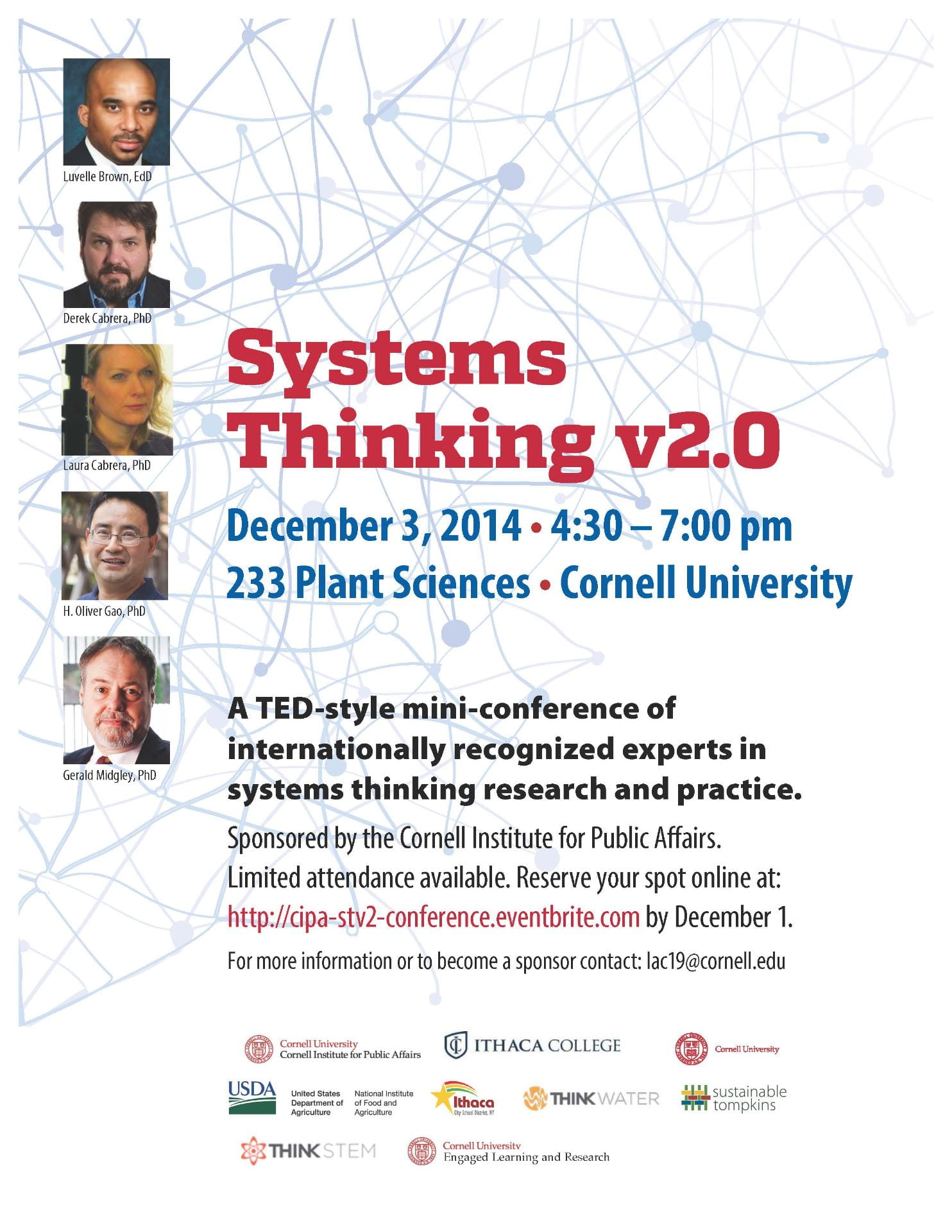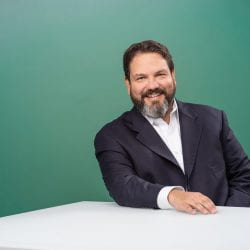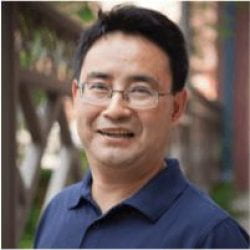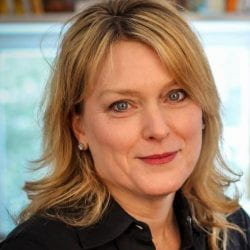 On Wednesday December 3, 2014 from 4:30-7:00pm (Plant Sciences 233), the Cornell Institute for Public Affairs (CIPA) will host a TED-style mini-conference on systems thinking keynoted by Gerald Midgley, Associate Dean for Research and Enterprise at Hull University School of Business. Speakers will also include systems scientist Derek Cabrera, translational researcher Laura Cabrera, Ithaca City School District Superintendent Luvelle Brown, and CIPA Core Faculty member Oliver Gao.
On Wednesday December 3, 2014 from 4:30-7:00pm (Plant Sciences 233), the Cornell Institute for Public Affairs (CIPA) will host a TED-style mini-conference on systems thinking keynoted by Gerald Midgley, Associate Dean for Research and Enterprise at Hull University School of Business. Speakers will also include systems scientist Derek Cabrera, translational researcher Laura Cabrera, Ithaca City School District Superintendent Luvelle Brown, and CIPA Core Faculty member Oliver Gao.
Tom O’Toole, Executive Director of the Cornell Institute for Public Affairs (CIPA), the host and co-sponsor of the event, says, “We hope this event will impress upon faculty, students, and community members the importance of systems thinking in the field of public affairs; not only the interdisciplinary applications of systems thinking in the field, but how lack of systems thinking (in both academia and practice) has contributed to some of the most serious political, economic, and social problems our world is facing.”
Along with CIPA, Systems Thinking v2.0 is co-sponsored by other leaders in the public, private, and University sectors such as Cornell’s Center for Engaged Learning and Research, Ithaca College’s School of Health Sciences and Human Performance, the Roy H. Park School of Communication, Sustainable Tompkins, and the Ithaca City School District, ThinkWater, USDA/NIFA, and ThinkSTEM.
Raj Subramaniam, Professor & Graduate Program Chair of the Department of Health Promotion and Physical Education at Ithaca College states, “Systems Thinking is the gateway to making connections.” The conference is intended for people from all academic disciplines, community leaders, practitioners, students, policy and program directors, educators, cognitive scientists and thought leaders, all of whom will have the opportunity to engage in a lively discussion exploring the promise of systems thinking to make the connections that need to be made to resolve the complex issues we face.
Derek Cabrera, research scientist at Cabrera Research Lab, says that the sessions will provide a new way of looking at the challenges that we all face, and highlight ways to develop the robust understanding and application of systems thinking needed to meet challenges head on in a way that is aligned with the reality of the way the world works. “Systems Thinking has the potential to change the way we do science and the ways we do society. The problems we face as a species are almost always caused by the differences between how we think the world works and how it actually works. Systems thinking is a field that attempts to explicitly remedy this problem.”
Speakers
The event is a mini-conference featuring short, TED-style talks on systems thinking. The event schedule is as follows:
Introduction (Dr. Laura Cabrera): 10 minutes (4:30-4:40)
Dr. Gerald Midgley: 30 minutes (4:40-5:10)
Dr. Derek Cabrera: 25 minutes (5:10-5:35)
Dr. Oliver Gao: 15 minutes (5:35-5:50)
Dr. Luvelle Brown: 15 minutes (5:50-6:05)
Dr. Laura Cabrera: 15 minutes (6:05-6:20)
Panel Discussion Q&A: 40 minutes (6:20-7:00)
(Click on a speaker to reveal their bio)

Gerald Midgley is Professor of Systems Thinking and Associate Dean for Research and Enterprise in the Business School at the University of Hull, UK. He also holds Adjunct Professorships at the University of Queensland, Australia; the University of Canterbury, New Zealand; Mälardalen University, Sweden; and Victoria University of Wellington, New Zealand. He was Director of the Centre for Systems Studies at Hull from 1997 to 2003 and from 2010 to 2014. From 2003 to 2010, he was a Senior Science Leader in the Social Systems Group at the Institute of Environmental Science and Research (ESR), New Zealand. Gerald has had over 300 papers on systems thinking, action research and stakeholder engagement published in international journals, edited books and practitioner magazines, and has been involved in a wide variety of public sector, community development, technology foresight and resource management projects. He was the 2013/14 President of the International Society for the Systems Sciences, and has written or edited 11 books including, Systemic Intervention: Philosophy, Methodology, and Practice (Kluwer, 2000); Operational Research and Environmental Management: A New Agenda (Operational Research Society, 2001); Systems Thinking, Volumes I-IV (Sage, 2003); Community Operational Research: OR and Systems Thinking for Community Development (Kluwer, 2004); and Forensic DNA Evidence on Trial: Science and Uncertainty in the Courtroom (Emergent, 2011).

Derek Cabrera (PhD, Cornell) is an internationally known systems scientist who in 2021 was inducted as a Member of the International Academy for Systems and Cybernetic Sciences (IASCYS) for outstanding contributions to the field. Derek serves on the faculty of Cornell University, is Faculty Director for the Graduate Certification Program in Systems Thinking, Modeling, and Leadership (STML) and is senior scientist at Cabrera Research Lab. He serves on the United States Military Academy at West Point’s Systems Engineering Advisory Board. He has given two TED Talks, holds two US patents, written and produced a rap song, a children’s book on cognition, and numerous book chapters and peer-reviewed journal articles. His research has been profiled in peer-reviewed journals, trade magazines, and popular publications. His work in public schools was documented in the full-length documentary film, RE:Thinking. He was Research Fellow at the Santa Fe Institute (SFI) for the Study of Complex Systems and National Science Foundation IGERT Fellow in Nonlinear Systems in the Department of Theoretical and Applied Mechanics at Cornell University. In 2018, he received the National Science Foundation Small Business Innovation Research (SBIR) for his work in cognitive mapping. He is author of ten books including, The Origin of Ideas: Empirical Studies in Cognitive Complexity (forthcoming 2022), Systems Thinking Made Simple (winner of the 2017 AECT outstanding book award), Thinking at Every Desk, and Flock Not Clock. He is credited with discovering universal organizing rules of systems and systems thinking (DSRP Theory) and organizations (VMCL Theory). He was invited by LinkedIn Learning and eCornell to deliver online courses in Systems Thinking and Leadership. He was Co-Founder and Chief Science Officer of Plectica (since sold to Frameable) where he invented several software applications including Plectica systems mapping and virtual whiteboard. Cabrera is co-editor of the Routledge Handbook of Systems Thinking (forthcoming 2022) and on the editorial board of the international, peer-reviewed journal, Systems. He is the Editor in Chief of the peer-reviewed Journal of Systems Thinking. As a National Science Foundation postdoctoral fellow, he developed new techniques to model systems approaches in the evaluation of Science, Technology, Engineering, and Mathematics (STEM). Cabrera was awarded the Association of American Colleges and Universities’ K. Patricia Cross Future Educational Leaders Award. His contributions to the field of systems thinking have been integrated into NSF, NIH, and USDA-NIFA programs, K-12, higher education, NGOs, federal agencies, corporations, and business schools. His systems models are used by many of Silicon Valley’s most innovative companies. His books are used as introductory text for undergraduate and graduate students in numerous colleges and universities including Cornell University, the US Military Academy at West Point, and the US Army War College. Cabrera has developed a suite of systems thinking tools for use in academia, business, and beyond including the first validated personal inventory of systems thinking. Prior to becoming a scientist, Cabrera worked for fifteen years around the world as a mountain guide and experiential educator for Outward Bound and other organizations and has climbed many of the world’s highest mountains. He also worked extensively with the Conservation Corps and Restorative Justice movements. He holds a PhD from Cornell University and lives in Ithaca, NY, with his wife, Laura Cabrera, three children, and two dogs.

Dr. Luvelle Brown has served as Superintendent of the Ithaca City School District (ICSD) in Ithaca, New York since January 2011. Prior to arriving in Ithaca, Dr. Brown served as a school CIO, Executive Director of the Division of School Improvement, teacher, assistant principal, and principal. Dr. Brown received the 2014 eSchool News Tech-Savvy Superintendent Award, and was recognized by the National School Boards Association as a “20-to-Watch” in 2014. Dr. Brown is the co-author of ThinkTweets: 100 Transformative Tweets for Educators. In his district, Dr. Brown has done much to build a collaborative culture focused on using student work to make real-time instructional shifts. During his tenure at ICSD the district’s graduation rate has skyrocketed to above 90% (up from 78%), while students are achieving significantly above state and national average on various standardized tests. Dr. Brown has driven several district-wide initiatives based on systems thinking including: integrating thinking skills into every classroom, shifting the organizational design towards a systemic approach, redesign of learning spaces, and numerous technology initiatives such as systems-based visual mapping, game-based learning, innovative uses of social media, and 1:1 mobile device implementation.

Dr. Oliver Gao is an Associate Professor in the graduate fields of 1) Civil and Environmental Engineering (Transportation Systems Engineering), 2) Systems Engineering, 3) Cornell Institute of Public Affairs (CIPA), and 4) Air Quality in Earth and Atmospheric Science at Cornell University. His research focuses on transportation systems, environment (especially air quality and climate change), energy, and sustainable development. He also studies sustainable food systems, quantifying and mitigating green-house gas emissions from food supply chains. He is a member of Transportation Research Board Committee on Transportation and Air Quality (ADC20), a member of Transportation Research Board Committee on Maintenance Equipment (AHD60), an academic member on the FACA Committee of US EPA MOVES model development, and a member (invited) on the editorial board of the international journal Transportation Research Part D: Transport and Environment. Gao received his graduate degrees (Ph.D. in CEE, M.S. in Statistics, and M.S. in Agriculture and Resource Economics) from the University of California at Davis in 2004, M.S. degree in Civil Engineering in 1999, and duel undergraduate degrees in Civil Engineering and Environmental Science in 1996 from Tsinghua University, China. Before joining Cornell, Gao was a quant in the mathematical and econometrical modeling division at the Rohatyn Group, LLG, a Wall Street hedge fund specializing in emerging markets.

Laura Cabrera (B.S., M.P.A, & PhD, Cornell) currently teaches Systems Thinking and Modeling and Systems Leadership at Cornell University at the Institute for Policy Affairs. She is also Program Director for Cornell’s Graduate Certification Program in Systems Thinking, Modeling, and Leadership (STML). Cabrera serves as faculty for the SC Johnson College of Business, where she delivers Executive Education Programs to executive teams in both systems thinking and systems leadership.She is co-founder, and chief research officer at Cabrera Research Lab. She was Co-Founder and Chief Research Officer of Plectica (now Frameable). Over the past decade, Laura has applied her expertise in research methods and translational research to increase public understanding, practical application, and dissemination of sophisticated systems science and systems thinking models. She was also invited by eCornell to deliver the online certificate course in Systems Thinking and Leadership, as well as the eCornell courses that are part of the Executive MPA Program. She was the acting Executive Director of ThinkWater, a USDA-funded initiative designed to implement systems thinking nationwide in water-based research, extension, and education. In 2018, she received the National Science Foundation Small Business Innovation Research (SBIR) for her work in cognitive mapping. She has more than twenty-five years of research and teaching experience at Cornell University, which includes: teaching coursework on families and social policy in Cornell’s Department of Human Development; Senior Research Associate at the Center for Translational Research; Principal Evaluator for the Eat Smart New York Program for the NYS Food Stamp and Nutrition Education Program; Project Director for the National Science Foundation Science, Technology, Engineering and Mathematics (STEM) Systems Evaluation Capacity Grant to evaluate STEM Education nationwide and to develop a systems thinking approach to STEM education; and Co-Principal Investigator for Cornell’s Parenting in Context Initiative. Prior to Cornell, Cabrera conducted research at the National Academy of Sciences Institute of Medicine, the U.S. Department of Health and Human Services, and the U.S. Department of Justice. She has authored five books including Systems Thinking Made Simple: New Hope for Solving Wicked Problems and Thinking at Every Desk: Four Simple Skills to Transform Your Classroom (Norton), Flock Not Clock: Design, Align, and Lead to Achieve Your Vision, and is currently co-editor of the Routledge Handbook of Systems Thinking. Her work in public schools was documented in the full-length documentary film, RE:Thinking. Dr. Cabrera holds a PhD in Policy Analysis and Management and a Master’s in Public Administration, and a bachelor’s degree, all from Cornell University. She is a member of the United States Military Academy at West Point’s Systems Engineering Advisory Board. She specializes in translating cutting-edge research from the learning sciences for broad application–whether in corporations, schools, nonprofits, government agencies, or for parents interested in the psychosocial development of their children. She lives in Ithaca, NY, with her husband, Derek Cabrera, three children, and two dogs.
Recordings of Presentations
Dr. Gerald Midgley
Dr. Derek Cabrera
Dr. Luvelle Brown
Dr. Laura Cabrera
Dr. Oliver Gao
